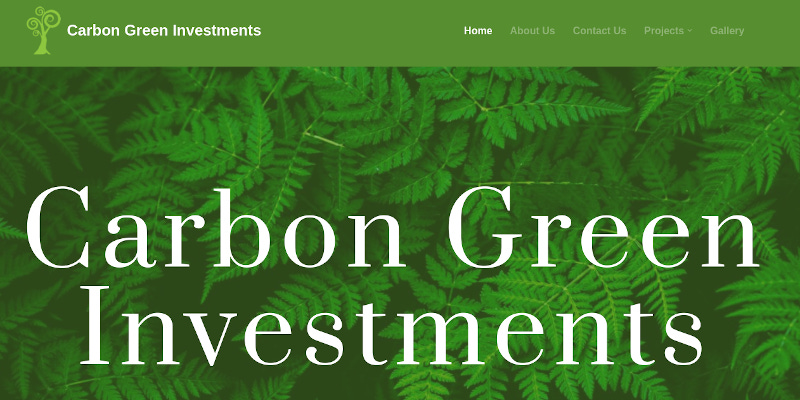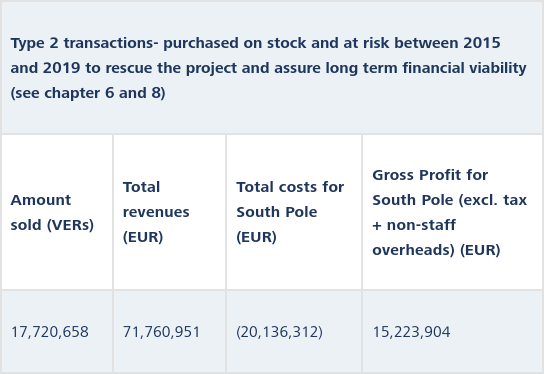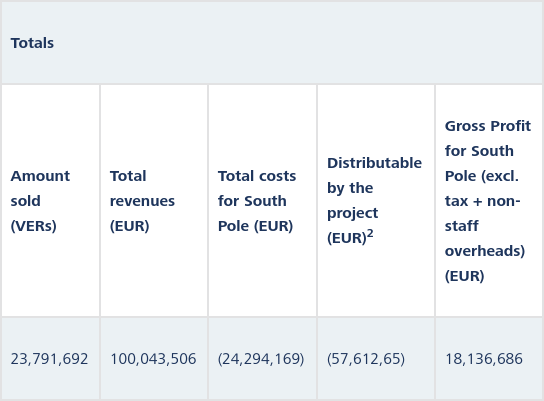The Kariba REDD project, Zimbabwe: “The community is complaining because they are not seeing money trickle down”
The Guardian reports that money from carbon credit sales has not reached local communities.
Since 2011, the Kariba REDD project in Zimbabwe has made more than €100 million from selling carbon credits. But a recent article in The Guardian reveals that “Only a fraction of the €100m has been distributed to the villages within the project.”
The figures that The Guardian quotes in its article come from an article written by Christian Dannecker, a director and co-founder of South Pole, the Kariba REDD project developer.
Dannecker wrote the article on 27 January 2023, a few days after The Guardian, Die Zeit, and SourceMaterial published the results of a nine-month investigation into REDD credits that found that the biggest carbon certification company in the world, Verra, had created a system that was easily manipulated. The result was that millions of carbon credits had been sold that should never have existed in the first place.
While Verra denied the findings of the investigation, less than four months later, the CEO of Verra, David Antonioli resigned, after 15 years at the head of the organisation.
South Pole’s “commitment to being as transparent as possible”
When Dannecker’s article was published, it included the following graph of sales of carbon credits from Kariba between 2013 and 2022:

By 2022, the Kariba REDD project was South Pole’s biggest generator of carbon credits, with more than 10% of South Pole’s revenue coming from the project.
Dannecker also wrote that “In line with our continued commitment to being as transparent as possible, the detailed financials as of 31.12.2022 look as follows:”
South Pole subsequently seems to have lost its enthusiasm for transparency. These figures, and the graph above have now been removed from Dannecker’s article on South Pole’s website.
Exaggerated baseline, paramilitary anti-poaching units, trophy hunting, and no money trail
On the same day that Dannecker’s article appeared on the South Pole website, Follow the Money published an article that revealed that the company had massively inflated the number of carbon credits that the project generated.
In July 2023, Die Zeit published an article about the Kariba REDD project and the anti-poaching operations that take place as part of the project. South Pole’s reports reveal that hundreds of poachers had been arrested. A paramilitary unit was founded for the project to address poaching. More than twice as many people were employed in anti-poaching units as in the offsetting project itself.
On 16 October 2023, Heidi Blake’s brilliant article “The Great Cash-for-Carbon Hustle”, was published in the New Yorker. Blake’s article exposed that the money trail from the sale of carbon credits was deliberately impossible to follow. Steve Wentzel, the Zimbabwean entrepreneur behind the Kariba REDD project had set up a company called Carbon Green Investments, which was incorporated in the tax haven of Guernsey.
Wentzel admitted to Blake that the way he hid the money trail was “illegal”.
Also on 16 October 2023, Follow the Money published another article about Kariba. This one revealed that trophy hunting was taking place on land overlapping the REDD project.
On 17 October 2023, Verra put the project on hold and announced that it would carry out an investigation into the project.
By the end of the month, South Pole had pulled out of the Kariba REDD project. The following month, Renat Heuberger, co-founder and CEO of South Pole resigned over the Kariba scandal.
Blame the “Western media”
In November 2023, in the run up to COP28, a few articles appeared in Zimbabwean newspapers in favour of the Kariba REDD project. One article tells us that “Zimbabwe’s trade in carbon credits has seen many communities in remote areas benefit” and that the “Western media” has been on “a drive to discredit one of the biggest carbon trading projects”.
Another article features an interview with Charles Ndondo, managing director of Carbon Green Africa, a subsidiary of Wentzel’s Carbon Green Investments. Ndondo doesn’t address any of the criticisms raised about the Kariba project. Instead Ndondo says that,
“In an effort by the West to inhibit the smooth trade in carbon trading, the Western media has been in overdrive to discredit one of the biggest carbon trading projects, Carbon Green Africa, which has operated since 2011 and has gone through five very successful verification and validation processes at a Gold Standard level.”
The fact that Verra’s certification system didn’t notice anything wrong with the Kariba REDD project, despite five verification and validation processes, is actually part of the problem.
Predictably enough, Verra tells The Guardian that Kariba “remains an outlier in the long history of impactful REDD+ projects around the world”. But that is simply not true. Verra has been embroiled in scandal after scandal for many years.
According to Verra’s rules, The Guardian reports, project developers “are not required to disclose or audit where the money from credits goes”.
In his January 2023 article, Christian Dannecke wrote that South Pole will:
Every three months, publish the funds distributed to the project beneficiaries on our webpage (based on the project’s input)
Ensure that the monthly project progress and expense reports are available to relevant stakeholders
Continue monitoring and communicating publicly about the project’s positive impacts
That promise has now been deleted from South Pole’s website.
“They are not seeing money trickle down”
Rogers Kavura lives in Chikova village in Hurungwe district. He took a job as a forest ranger with the local council, with funding from the Kariba REDD project. He tells The Guardian that the community would would like to see improvements to roads, schools, health, and irrigation.
Kavura says,
“We hear reports that the company has been making lots of money, but we do not know where this money is going. The community is complaining because they are not seeing money trickle down.”
The Guardian explains that local communities are supposed to benefit from REDD projects, but there are “no legal or contractual obligations for companies selling offsets to share revenues, which are often kept secret by project developers”.
Of the €100 million from sales of carbon credits, 86% was siphoned off by South Pole and Carbon Green Investments. A maximum of €14 million went to the people living in the project area through cash transfers or infrastructure improvements.
That’s a grand total of €35 for each of the 400,000 people who live in the project area. Over a period of more than a decade.
South Pole made €18 million from selling carbon credits - considerably more than went to the communities in the project area.
Wentzel provided The Guardian with, “internal documentation explaining €14 m of distributed funds, including detailed receipts and invoices for about €4.5m of that total”. According to The Guardian, Wentzel is undertaking a voluntary audit with Deloitte.
In October 2023, Wentzel told Quantum Commodity Intelligence that the project would continue “without question”. The Guardian now reports that, “Wentzel says the project would need to continue selling carbon credits to keep going.”
Bigboy Mangirazi, a teacher living in the Kariba REDD project area tells The Guardian that,
“On paper, the money has been given. But in practice, it has not been seen on the ground. I have been speaking with local chiefs. They have nothing to show for it. There is a small agriculture field and a few borehole projects. We need to see visible things on the ground. People are very angry. How much are we benefiting from the carbon project?”
Elias Ayrey runs the carbon credit rating agency Renoster. In October 2022, Ayrey calculated that the Kariba REDD project was “likely receiving more than 30x as many credits as it should”. Ayrey tells The Guardian that South Pole “walking away from the project is an abandonment of the commitments that they made at the start . . . to ensure that the trees remained intact for 30 years and that local people benefited from the work.”
Luciana Téllez, a senior researcher with Human Rights Watch, tells The Guardian that,
“It is common for developers of carbon offsetting projects to forcefully assert local communities and Indigenous peoples are the main beneficiaries of their initiatives – yet these claims are usually unverifiable given the secrecy reigning over projects’ revenues and expenses.
“Generally, only companies running the projects really know how much money is trickling down, and how much their executives and business partners are cashing in.
“The certification standards that dominate the voluntary carbon market do not actually require developers to equitably share profits with communities on whose land the project may be taking place. As it stands, the lack of transparency over projects’ revenues makes it impossible to fact check the sweeping claims about offsetting projects being a major source of livelihood for Indigenous peoples and local communities.”










Of course, "the people" don't benefit, they are sold the bill of goods as part of the "informed consent" false consultations. The financial "cowboys" are the main beneficiaries (that's why they play this game, duh) as are the mugs dumb enough to buy the meaningless credits.